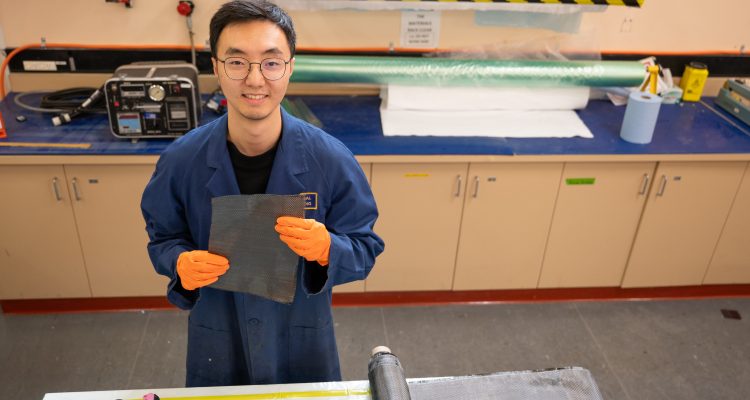Recycling carbon fiber has been a topic of great interest in the composite’s community and beyond. A scientist at the University of South Wales Canberra (UNSW) developed a process to recycle carbon fiber leading to less waste, using less energy, and leaving more material intact for future use. The new process also leads to a stronger carbon fiber material when compared to existing recycled carbon fiber.
Currently carbon fiber is recycled by shredding the composite material before heating it to remove the plastic, which degrades the fiber. UNSW’s new method does not shred the material, leaving the fibers intact. The team optimized the heating process in the furnace, degrading the carbon fiber by less than 30 percent – a 50 percent improvement over existing methods.
Dr. Di He, researcher at UNSW, explained, “This project was a collaboration with our partner in the automotive industry who wants to investigate building cars out of recycled carbon fibre.”
Carbon fiber automobiles are lighter and, therefore, more energy efficient, which will assist car manufacturers in meeting recently announced Australian fuel efficiency standards. Auto manufacturers also have concerns about the cost of carbon fiber production and the environmental impact of the development and the use of carbon fiber. Recycled carbon fiber helps address the issues as it requires one-tenth of the energy needed to produce new carbon fiber materials.
The material isn’t ready to construct a car, but the researchers state that the recycled carbon fiber could potentially be used for individual car parts, such as a roof.
“As we make more advanced products we also make them from significantly more advanced materials, and as a result we are creating problems at the end of the life of that product,” said Matthew Doolan, Associate Professor at UNSW Canberra’s Advanced Manufacturing Research Group. “The standard practice of just dumping these products, or burning them, is unsustainable and cannot continue forever. Exploring other options available to us is one of the key questions we’re hoping to help answer at UNSW Canberra.”


